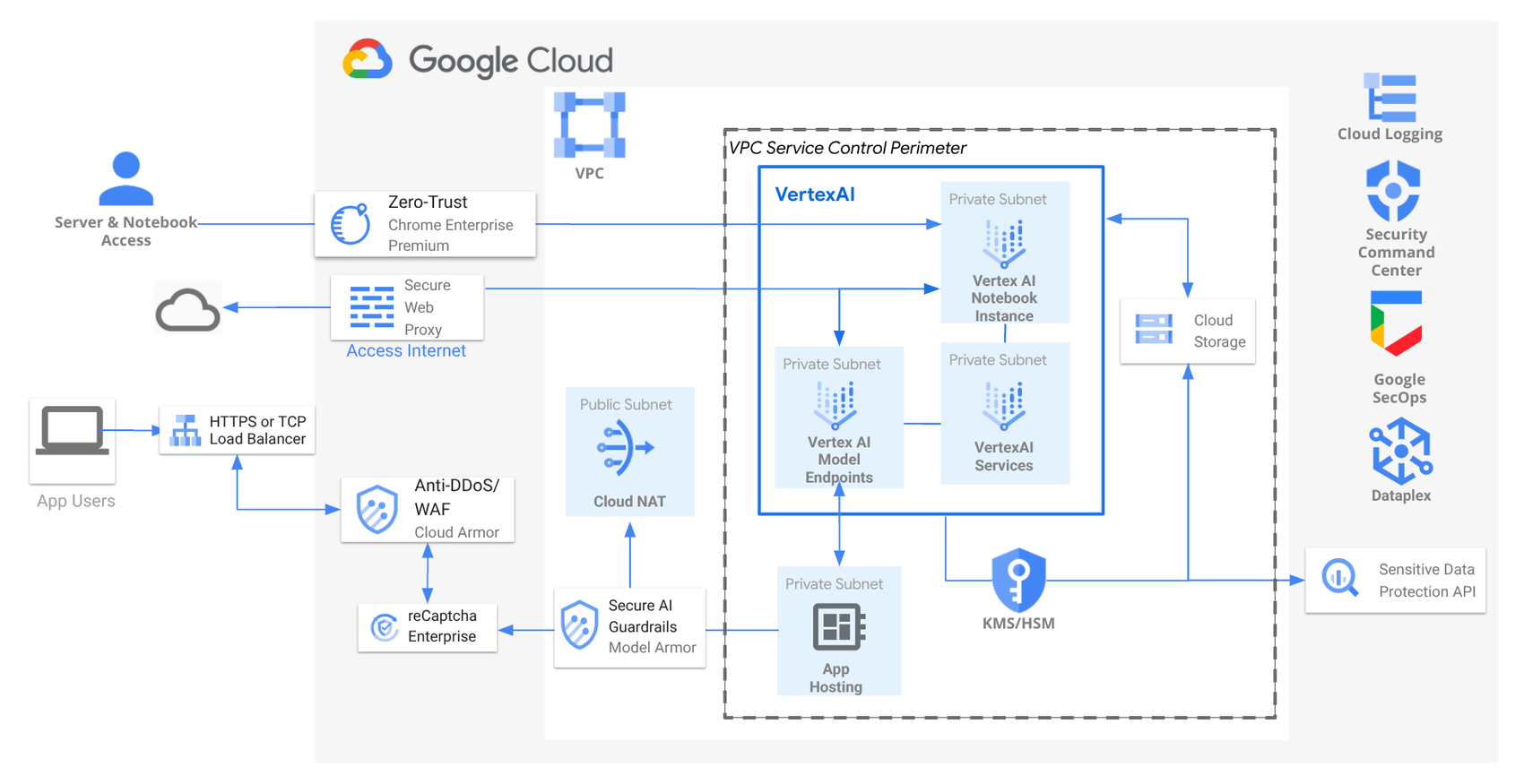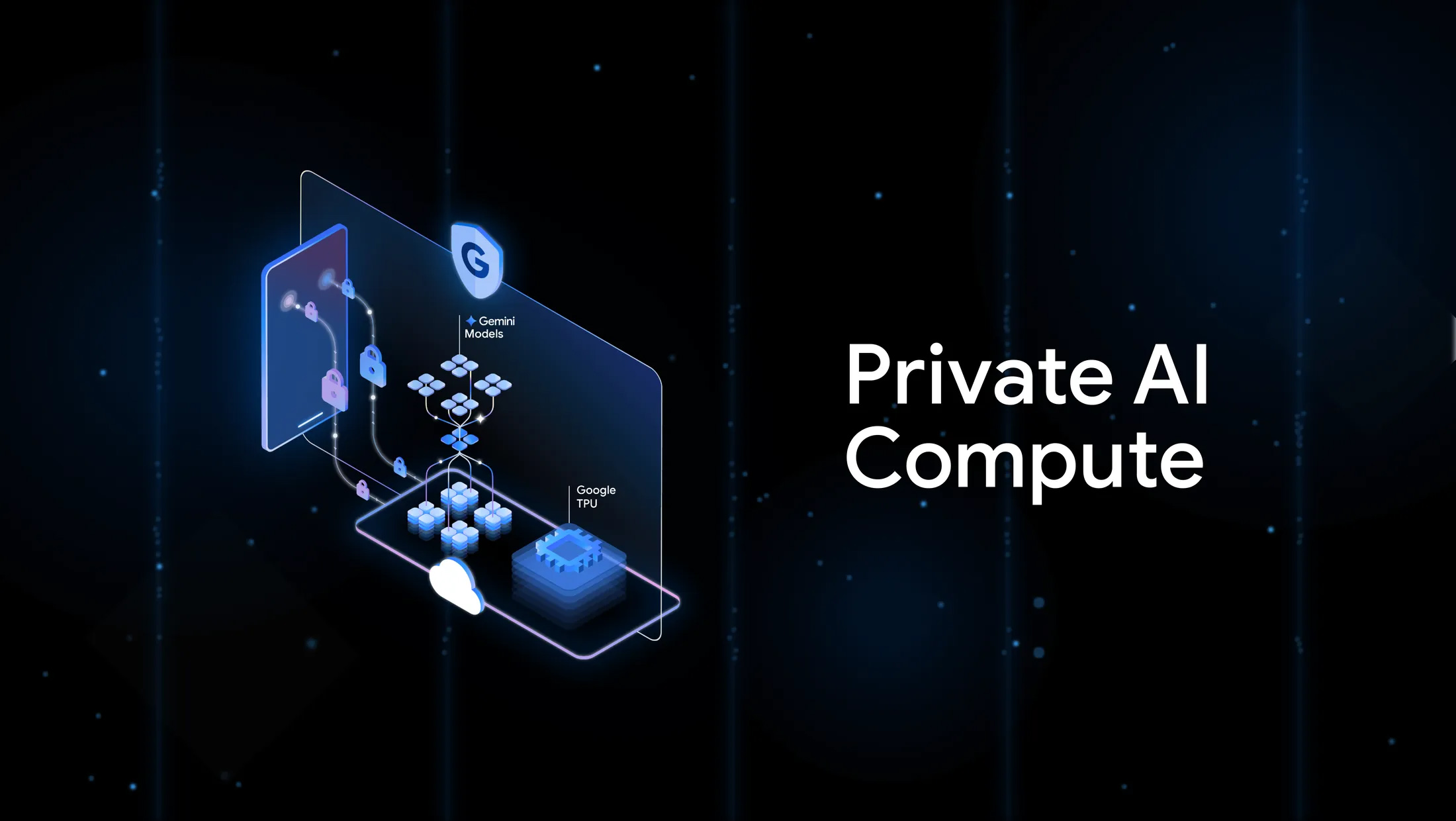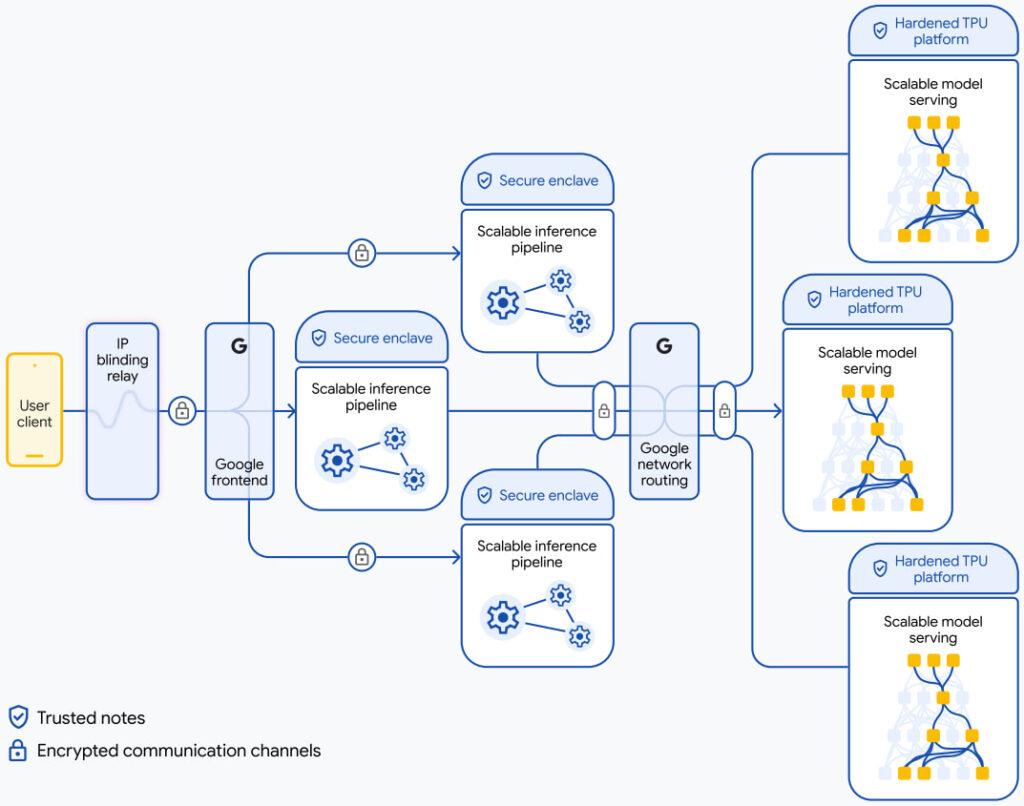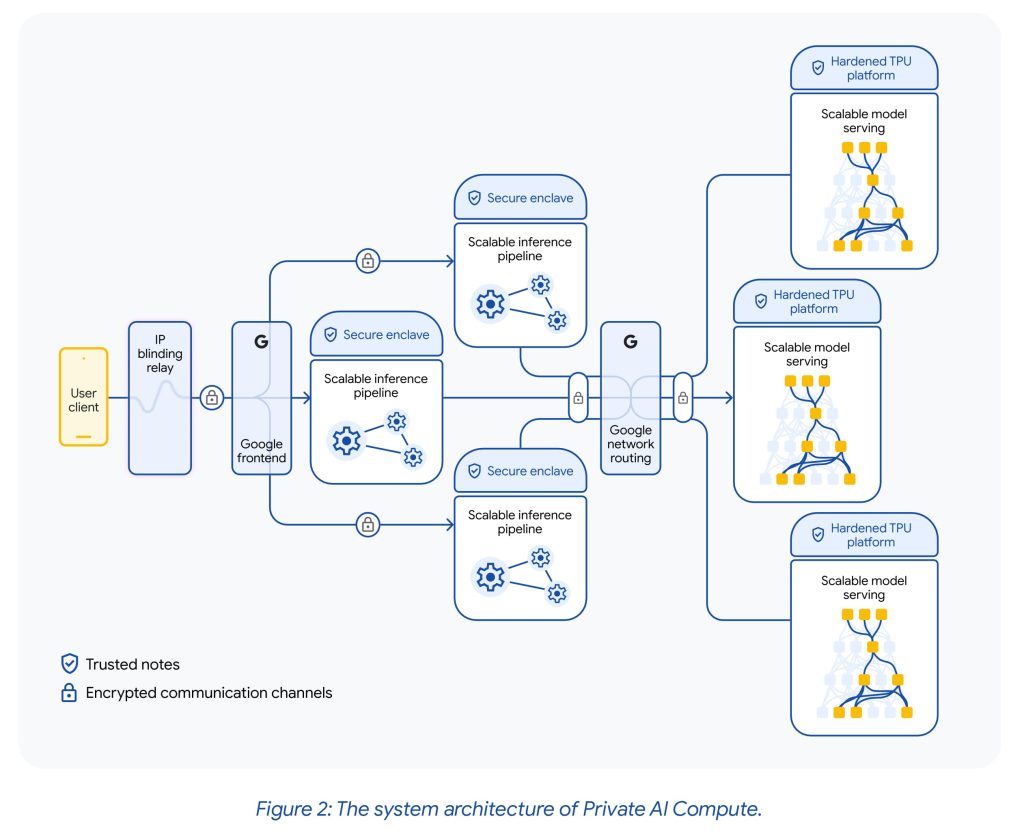Google Launches Private AI Compute—A New Era of Secure and Smarter Artificial Intelligence
- Get link
- X
- Other Apps
Google Launches Private AI Compute—A New Era of Secure and Smarter Artificial Intelligence
Google introduces “Private AI Compute,” a revolutionary cloud technology merging intelligence with privacy. Discover how India and the world could benefit from this breakthrough in AI infrastructure.

Caption: Google’s Secure AI-ML Reference Architecture showcasing cloud-to-device privacy workflow.
Introduction: The Dawn of Privacy-Centric AI
In a world increasingly dependent on artificial intelligence, one concern dominates the global tech conversation—data privacy. From chatbots to health analytics, every AI model requires massive amounts of personal data to train and improve. Yet, as the use of AI expands, so do fears of misuse, leaks, and unethical surveillance.
Addressing this, Google has launched a groundbreaking technology called “Private AI Compute,” designed to combine the power of the cloud with the safety of on-device privacy. The announcement marks a turning point in how AI models will process sensitive information—and it’s already being hailed as one of Google’s biggest technological leaps of 2025.
🔐 What is Google Private AI Compute?
Private AI Compute is Google’s new cloud architecture that enables advanced machine-learning operations without transferring sensitive user data. It acts as a bridge between edge devices (like smartphones, IoT sensors, or wearables) and secure cloud environments.
Here’s how it works in simple terms:
-
AI models are trained in the cloud but executed locally on user devices.
-
Data is processed through end-to-end encryption and differential privacy protocols.
-
No identifiable information leaves the device—yet the model keeps learning and improving.
Essentially, Google has created an AI ecosystem that is both intelligent and trustworthy—two traits often seen as contradictory in the modern data economy.
📱 Why It Matters for India
India, one of the world’s largest digital ecosystems, is at the heart of the global AI revolution. With over 820 million internet users and an expanding AI-driven economy, data privacy has become a top priority for both the government and citizens.
Private AI Compute could bring several direct benefits for India:
-
Data Localization Compliance:
India’s Digital Personal Data Protection Act (DPDPA 2023) requires stricter handling of personal data. Private AI Compute ensures compliance by minimizing cross-border data transfer. -
Empowering AI Startups:
Indian startups in sectors like health, fintech, and education can now leverage Google’s AI models without worrying about user data exposure. -
Boosting Public-Sector AI:
Government projects like Digital India or Smart Cities can use this technology to analyze citizen data securely—improving services while maintaining trust. -
Expanding Cloud Infrastructure:
Google Cloud’s new privacy-centric model may encourage more data center investments in India, fueling job creation and technological advancement.
🧩 The Technology Behind the Innovation
Google’s Private AI Compute relies on a combination of TensorFlow Federated, confidential computing, and homomorphic encryption. Together, these make data analysis possible without ever revealing the data itself.
Key Components:
-
Federated Learning:
Allows AI models to learn across millions of devices (phones, laptops, etc.) without centralizing user data. -
Secure Enclaves:
Special hardware units inside cloud servers that process encrypted data in isolation. -
Zero-Knowledge Proofs:
A cryptographic system where the AI model “knows” enough to make predictions but doesn’t “see” private data.
This approach keeps user privacy intact while retaining the intelligence and adaptability of large-scale AI models.
💡 Global Impact and Competition
Google’s announcement has set off ripples across the tech world. Microsoft, Amazon, and Meta are all racing to enhance privacy features in their AI offerings.
Experts predict that this technology could redefine global standards for responsible AI.
Analysts from Gartner and IDC already call Private AI Compute “the most significant shift in cloud architecture since Kubernetes.”
For enterprises, this means:
-
Lower compliance risks
-
Better brand trust
-
Faster adoption of AI across industries like healthcare, finance, and e-commerce.
🌱 Sustainability and Energy Efficiency
Another critical dimension of Private AI Compute is sustainability. Traditional AI models consume vast computing power and energy. Google claims that this new framework reduces computational waste by up to 40%, thanks to optimized local-cloud operations and shared processing loads.
For India, where both data and energy infrastructure are under pressure, this could become a model for green AI adoption.
🖼 Images and Visuals

Caption: Private AI Compute promises smart data handling without direct data exposure.

Caption: Secure enclaves and federated learning power Google’s next-gen AI architecture.
Caption: A look at the hybrid AI-security framework unveiled at Google Cloud Next 2025.
📊 Industry Reactions
-
Sundar Pichai (CEO, Google):
“We believe the future of AI must be both helpful and respectful of privacy. Private AI Compute delivers on that vision.” -
Rajeev Chandrasekhar (Minister of IT, India):
“India welcomes technologies that enhance data privacy while boosting innovation. Google’s latest move aligns with our Digital India goals.” -
Startups Respond:
Bengaluru-based AI startup founders have praised the move, calling it a “game-changer for startups handling health and finance data.”
🚀 The Road Ahead
Google plans to roll out Private AI Compute across its global data centers by mid-2026, starting with pilot programs in India, Singapore, and Germany. Developers will gain access through the Google Cloud Console and the Vertex AI platform.
Meanwhile, competitors like Microsoft and AWS are expected to release similar privacy-focused architectures within the next 12 months.
The race for ethical AI leadership has officially begun.
🔚 Conclusion: A Safer, Smarter Future
Google’s Private AI Compute isn’t just another product launch—it’s a statement of intent. It shows that innovation and privacy can coexist. As AI becomes deeply embedded in our lives, from hospitals to homes, this technology could reshape the global standard for trust and transparency in data use.
For India, where billions of digital footprints are generated daily, such secure frameworks can transform how citizens interact with AI—responsibly, safely, and confidently.
- Get link
- X
- Other Apps


Comments
Post a Comment